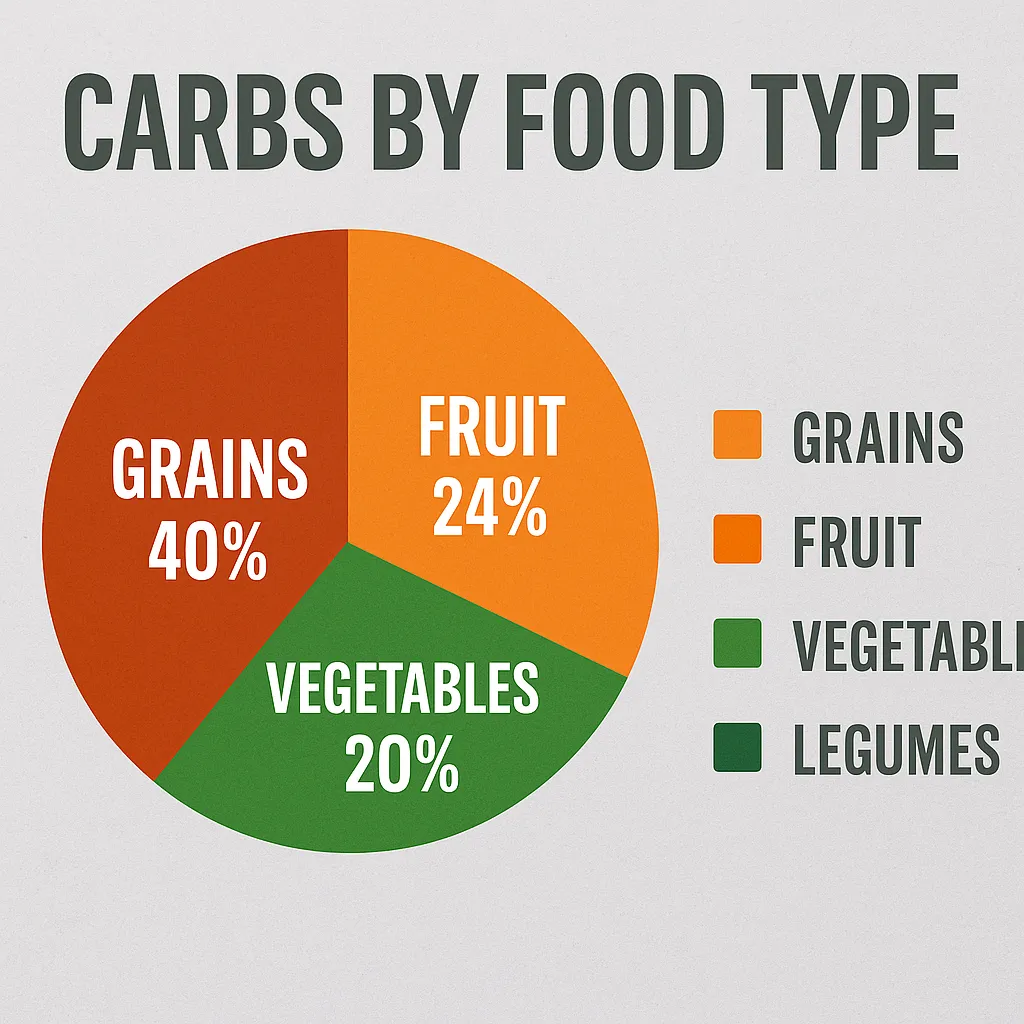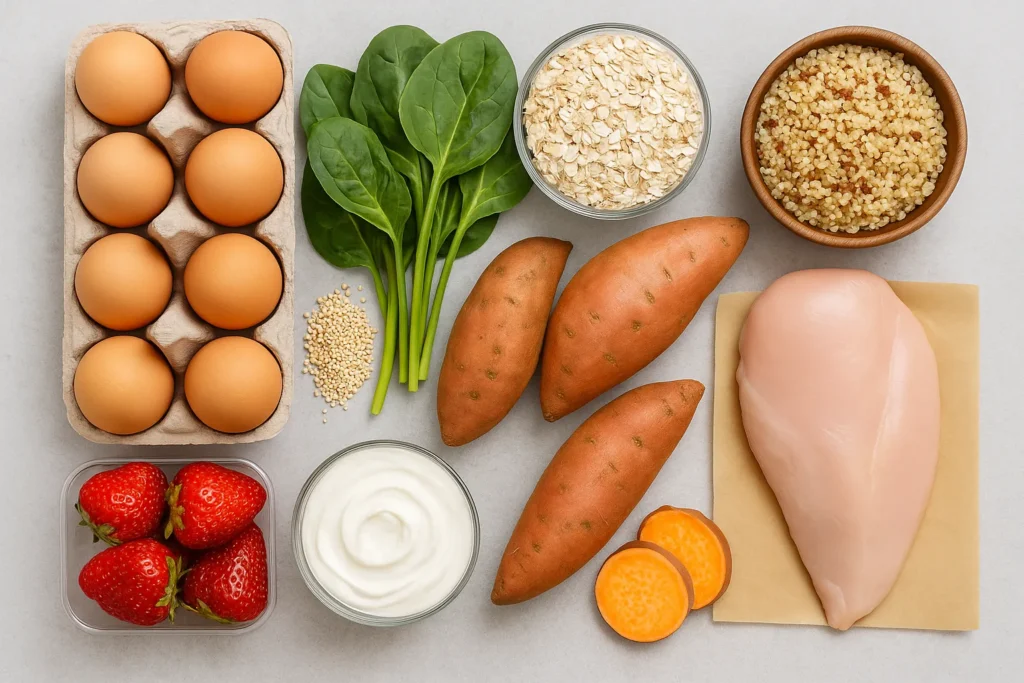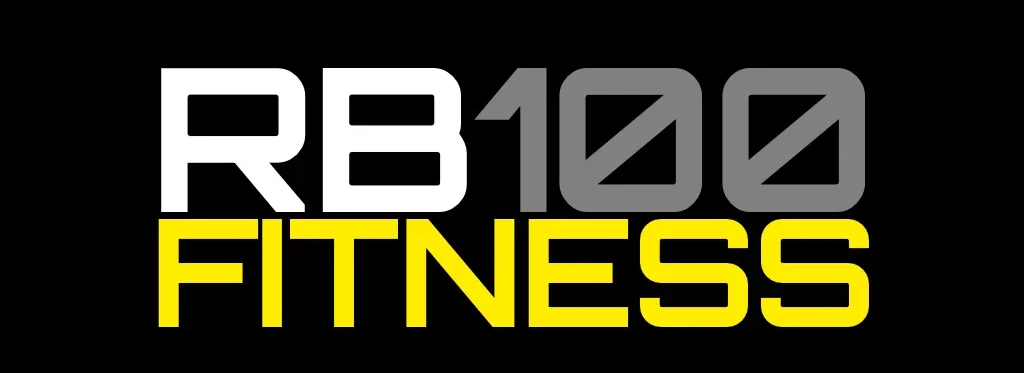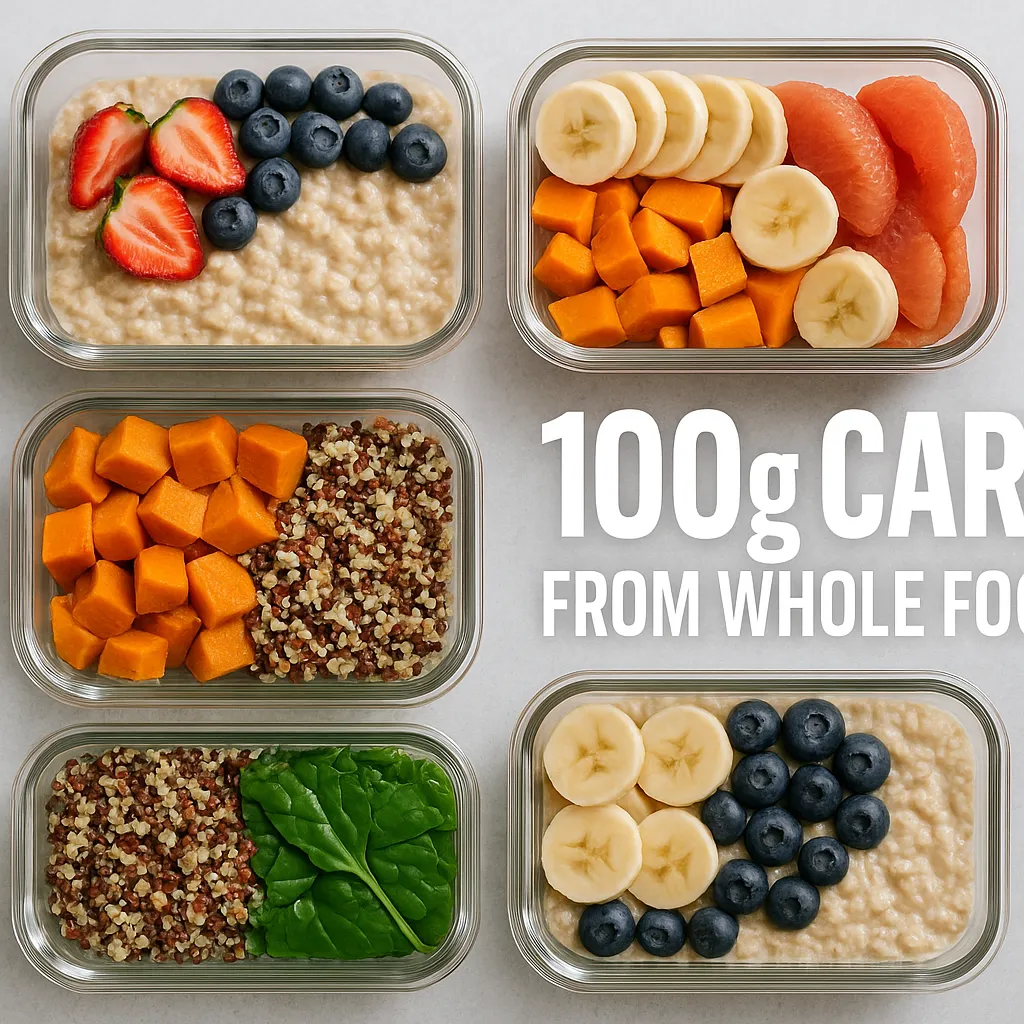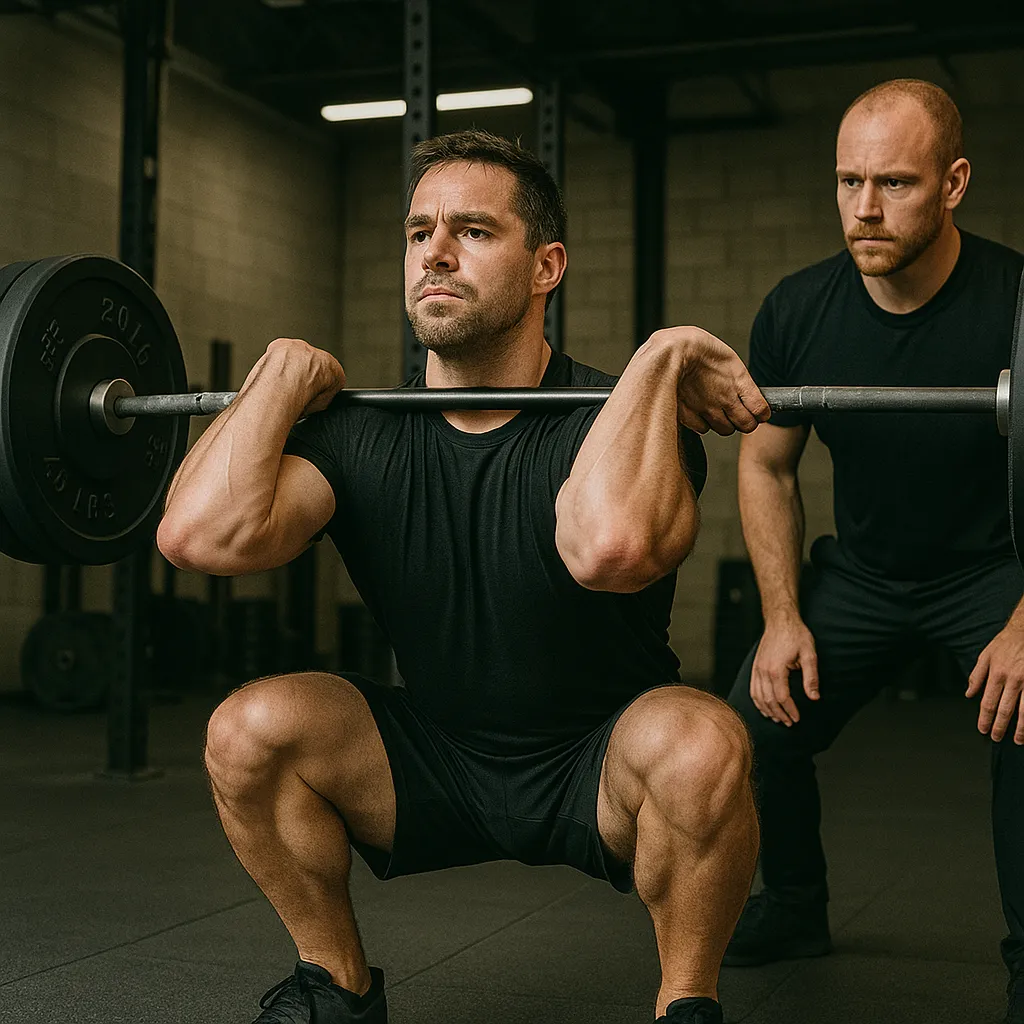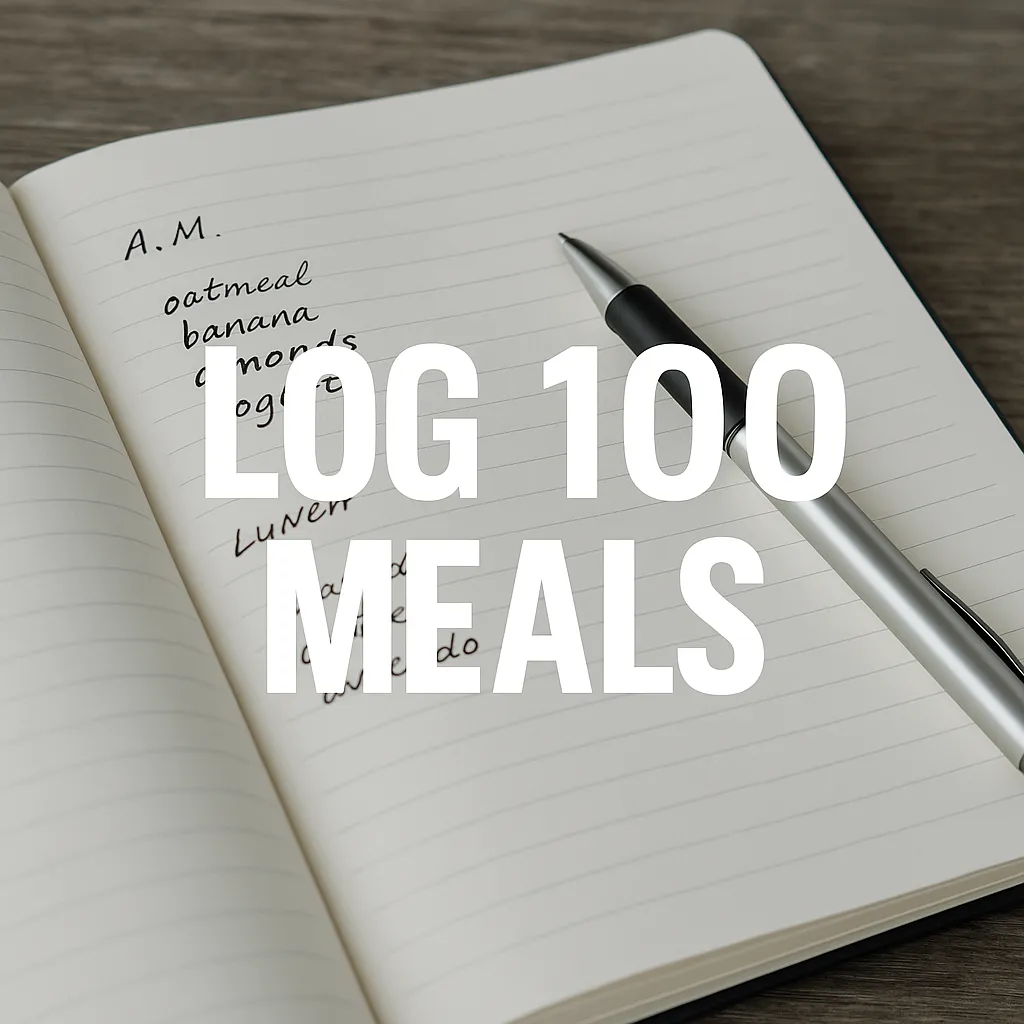Intro: Carbohydrates are often misunderstood — but they’re your body’s preferred fuel source for training, recovery, and even cognitive function. When you focus on whole food carb sources, you get fibre, vitamins, minerals, and sustained energy — not blood sugar crashes.
This guide shows you how to reach 100g of high-quality carbs in a day using real, nutrient-dense foods.
What Counts as a Whole Food Carb?
- Fruits (e.g. bananas, berries, apples)
- Vegetables (e.g. sweet potato, squash, carrots)
- Legumes (e.g. lentils, chickpeas)
- Grains (e.g. oats, brown rice, quinoa)
- Whole food starches (e.g. potatoes, plantains)
No refined sugar. No ultra-processed cereal bars. Just real food.
Sample Meal Plan (100g Carbs Total)
Breakfast:
- 40g oats = 27g carbs
- 1 banana = 24g carbs
Lunch:
- 100g cooked quinoa = 21g carbs
- Mixed veg stir-fry (carrot, onion, pepper) = ~12g carbs
Snack:
- Apple = 20g carbs
Total: ~104g carbs
Why 100g?
- Easy to track for fuelling lighter training days
- Helps stabilise energy without carb overload
- Supports brain function and hormone regulation
- Ideal baseline for low-to-moderate carb eaters
Tips for Success
- Prep complex carbs in bulk (quinoa, rice, oats)
- Pair with protein/fat to slow digestion
- Track your meals in MyFitnessPal or similar
- Try rotating carb sources weekly to diversify nutrients
